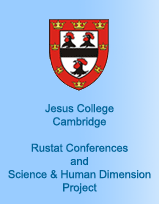

- Rustat Conferences
Rustat Report on Blockchain published
The report from the September 2016 Rustat Conference on Blockchain - Beyond Bitcoin is now published on the Rustat website.
Technology and AI Focus for Rustat Conferences in 2016
Machine Learning, Artificial Intelligence, the Blockchain and the Future of Work - these vital issues of today to feature in Rustat Conferences in 2016.
Rustat Conference Report on the UK North South Divide published
A diverse range of perspectives, opinions and policy suggestions appear in this new report from the UK North South Divide Rustat Conference - now available.
Big Data Analytics - Conference Report Published
The Rustat Conference on Big Data was held in collaboration with Cambridge Big Data Strategic Initiative on 30 September 2015 - report is now published.
Inequality - Rustat Conference Report
The proceedings of the March 2015 Inequality conference have been published on the Rustat website.
Transport & Energy Rustat Conference Report - November 2014
KPMG, Laing O'Rourke, McLaren, BP, Shell, HS2 and others tackled the most pressing UK transport and related energy questions.
Health Innovation: A Cambridge Success Story
The Rustat Conference on the development of the drug Campath-1H, entitled "Health Innovation: A Cambridge Success Story", took place at Jesus College on 29 January 2013. A report will be published shortly on the Rusat Conferences website.
Managing Organisational Change in the Economic Crisis
The Rustat Conference on Managing Organisational Change was held at Jesus College on 4 December 2012. The conference report is now available to download here.
The Future of Research-Intensive Universities
The sixth Rustat Conference discussed the future of research-intensive universities and was jointly hosted by the Vice-Chancellor of the University of Cambridge, Professor Sir Leszek Borysiewicz, and Professor Ian White, Master of Jesus College
Rustat Conference on UK Manufacturing
The fifth Rustat Conference was held at Jesus College, Cambridge, on 24 November 2011. Proceedings focused upon the challenges and opportunities facing the UK manufacturing sector. Chaired by Professor Ian White FREng, the conference featured contributions from leading figures from industry, government and academia.
The Rustat Conferences
Overview
The Rustat Conferences website has moved
Please note: for more information on the Rustat Conferences please visit the Rustat Conferences section of the new Jesus College, Cambridge website.
Please note: for more information on the Rustat Conferences please visit the Rustat Conferences section of the new Jesus College, Cambridge website.
Upcoming Events
Ageing
...................................................
Thursday, 23 March 2017, Jesus College, Cambridge
Our ageing population is one of the most important and pressing issues facing policy makers today. Join experts from medicine, economics, policy, sociology, health and social care, architecture and design, labour market, government and technology to discuss a range of topics:
- Economic and Demographic Perspectives on Ageing
- State/ government reaction to changing demographic profile of the population
- National and international responses to changing demographic profile of populations
- Public Policy and Public Perspectives on Ageing
- Social and cultural attitudes to the old in the workplace - Medical Perspectives on Ageing, Health, Wellness
- Intergenerational integration Political economy of an ageing population
- Attitudes to Ageing Amongst the Old and Very Old
- Ageing and Technological Innovation
For more information about this conference please email info@rustat.org
Thursday, 23 March 2017, Jesus College, Cambridge
Our ageing population is one of the most important and pressing issues facing policy makers today. Join experts from medicine, economics, policy, sociology, health and social care, architecture and design, labour market, government and technology to discuss a range of topics:
- Economic and Demographic Perspectives on Ageing
- State/ government reaction to changing demographic profile of the population
- National and international responses to changing demographic profile of populations
- Public Policy and Public Perspectives on Ageing
- Social and cultural attitudes to the old in the workplace - Medical Perspectives on Ageing, Health, Wellness
- Intergenerational integration Political economy of an ageing population
- Attitudes to Ageing Amongst the Old and Very Old
- Ageing and Technological Innovation
For more information about this conference please email info@rustat.org
Past Programme
The Future of Work
..................................................
Tuesday, 22 November 2016, Jesus College, Cambridge
The conference brought together technologists, economists, historians, philosophers, sociologists, architects and specialists from HR, organisational behaviour, finance, lifelong learning, government, policy making and industry to address the wide range of interconnected questions and ideas related to the Future of Work.
The conference was sponsored by Harvey Nash and KPMG and a report will be published shortly via this website.
Tuesday, 22 November 2016, Jesus College, Cambridge
The conference brought together technologists, economists, historians, philosophers, sociologists, architects and specialists from HR, organisational behaviour, finance, lifelong learning, government, policy making and industry to address the wide range of interconnected questions and ideas related to the Future of Work.
The conference was sponsored by Harvey Nash and KPMG and a report will be published shortly via this website.
Blockchain - beyond Bitcoin
..................................................
Thursday, 29 September 2016, Jesus College, Cambridge
The report of this Rustat Conference is now available here
. The conference addressed a range of questions concerning blockchain and Distributed Ledger Technologies DLTs.
For more information on this conference please contact us: info@rustat.org
Thursday, 29 September 2016, Jesus College, Cambridge
The report of this Rustat Conference is now available here
. The conference addressed a range of questions concerning blockchain and Distributed Ledger Technologies DLTs.
For more information on this conference please contact us: info@rustat.org
SuperIntelligence & Humanity
..................................................
Thursday, 2 June, 2016 Jesus College, Cambridge
The report of this conference is now available here
. The consequences of superintelligence and machine learning beyond the economic, political, defence and social welfare.
Thursday, 2 June, 2016 Jesus College, Cambridge
The report of this conference is now available here
. The consequences of superintelligence and machine learning beyond the economic, political, defence and social welfare.
The North South Divide in the UK
..................................................
Thursday, 26 November 2015, Jesus College, Cambridge
The report of this conference is now available here
. The North-South Divide in the UK is a critical and vital issue, with added significance and importance today in the context of questions of inequality, Scottish independence, regional and national devolution in the UK, and the seemingly unstoppable rise of the south-east and London, now labelled by some as a ‘City-State’.
The November 2015 Rustat Conference addressed the North-South Divide, aiming to clarify and debate some of the key issues.
Thursday, 26 November 2015, Jesus College, Cambridge
The report of this conference is now available here
. The North-South Divide in the UK is a critical and vital issue, with added significance and importance today in the context of questions of inequality, Scottish independence, regional and national devolution in the UK, and the seemingly unstoppable rise of the south-east and London, now labelled by some as a ‘City-State’.
The November 2015 Rustat Conference addressed the North-South Divide, aiming to clarify and debate some of the key issues.
Big Data
..................................................
Wednesday, 30 September 2015, Jesus College, Cambridge
A group of experts from academia, government and industry addressed the opportunities and challenges presented by Big Data.
The report of this conference is now available here
The meeting was held with the collaboration of Cambridge Big Data, a University of Cambridge Strategic Research Initiative, which brings together researchers from across the University to address challenges presented by the access to unprecedented volumes of data. The initiative's research spans all six Schools of the University, from the underlying fundamentals in mathematics and computer science, to applications ranging from astronomy and bioinformatics, to medicine, social sciences and the humanities.
The conference discussed a range of ideas and questions:
- How to exploit Big Data for useful, actionable knowledge to address practical problems?
- How Big Data impacts on business and the economy, health, social science research and engineering.
- Big Data and Industrial Collaboration: case study from KPMG and McLaren Racing
- Big Data and ethical concerns: questions of ownership and use of data, access,privacy and security.
- Big Data Science: how is it making a difference to the way we live and work?
Wednesday, 30 September 2015, Jesus College, Cambridge
A group of experts from academia, government and industry addressed the opportunities and challenges presented by Big Data.
The report of this conference is now available here
The meeting was held with the collaboration of Cambridge Big Data, a University of Cambridge Strategic Research Initiative, which brings together researchers from across the University to address challenges presented by the access to unprecedented volumes of data. The initiative's research spans all six Schools of the University, from the underlying fundamentals in mathematics and computer science, to applications ranging from astronomy and bioinformatics, to medicine, social sciences and the humanities.
The conference discussed a range of ideas and questions:
- How to exploit Big Data for useful, actionable knowledge to address practical problems?
- How Big Data impacts on business and the economy, health, social science research and engineering.
- Big Data and Industrial Collaboration: case study from KPMG and McLaren Racing
- Big Data and ethical concerns: questions of ownership and use of data, access,privacy and security.
- Big Data Science: how is it making a difference to the way we live and work?
Inequality
..................................................
Thursday, 19 March 2015, Jesus College, Cambridge
A group of senior decision makers from academia, government, industry, NGOs, think tanks, and the media met to discuss inequality - a global and vital issue of the day.
The report of this conference is now available here
Thursday, 19 March 2015, Jesus College, Cambridge
A group of senior decision makers from academia, government, industry, NGOs, think tanks, and the media met to discuss inequality - a global and vital issue of the day.
The report of this conference is now available here
Transport and Energy
..........................................................................
Thursday 27 November, 2014
Leading experts from academia, industry, government and the media met to discuss a range of issues relating to Transport and Energy.
The agenda topics inlcuded : Freight - road, rail, ship and air; fuel efficiency; low emission vehicles; battery technology; nuclear energy for shipping; electrification of transport; autonomous electric vehicles; transport and energy in our cities; air traffic and fuel; low carbon transportation systems. Participants included experts from the University of Cambridge, KPMG, Laing O'Rourke, McLaren Racing Ltd, BP, Shell, HS2, and Transport Catapult Systems.
The report for this conference is now available here.
Thursday 27 November, 2014
Leading experts from academia, industry, government and the media met to discuss a range of issues relating to Transport and Energy.
The agenda topics inlcuded : Freight - road, rail, ship and air; fuel efficiency; low emission vehicles; battery technology; nuclear energy for shipping; electrification of transport; autonomous electric vehicles; transport and energy in our cities; air traffic and fuel; low carbon transportation systems. Participants included experts from the University of Cambridge, KPMG, Laing O'Rourke, McLaren Racing Ltd, BP, Shell, HS2, and Transport Catapult Systems.
The report for this conference is now available here.
Food Security - UK and Global Perspectives
..........................................................................
Thursday 11 September 2014
Leading academics in the field of Food Security joined senior decision makers from industry and government for a one-day roundtable conference at Jesus College, Cambridge.
Agenda topics included:
- GMOs and the future of biotechnology - controversial science?
- Supply: will growing more provide more food security?
- Demand: feeding a growing world population healthily – the policy challenges
- Threats to UK public health from poor diet - whose responsibility is this?
- Sustainable production, consumption and waste
- The Water Crisis and feeding the world
- Climate change, energy and Food Security
The report for this conference is available here
Thursday 11 September 2014
Leading academics in the field of Food Security joined senior decision makers from industry and government for a one-day roundtable conference at Jesus College, Cambridge.
Agenda topics included:
- GMOs and the future of biotechnology - controversial science?
- Supply: will growing more provide more food security?
- Demand: feeding a growing world population healthily – the policy challenges
- Threats to UK public health from poor diet - whose responsibility is this?
- Sustainable production, consumption and waste
- The Water Crisis and feeding the world
- Climate change, energy and Food Security
The report for this conference is available here
The Understanding and Misunderstanding of Risk and Statistics
..........................................................................
Tuesday 4 March 2014
Speakers included:
Professor David Spiegelhalter OBE FRS, Winton Professor of the Public Understanding of Risk at the University of Cambridge
Professor Bernard Silverman FRS, Chief Scientific Adviser to the Home Office
Professor Sheila Bird OBE FRSE FRSS, Programme Leader at the MRC Biostatistics Unit at the University of Cambridge
Rt Hon Sir Tony Baldry MP, former Minister of State for Agriculture, Fisheries and Food
The report of this conference is now available here
Tuesday 4 March 2014
Speakers included:
Professor David Spiegelhalter OBE FRS, Winton Professor of the Public Understanding of Risk at the University of Cambridge
Professor Bernard Silverman FRS, Chief Scientific Adviser to the Home Office
Professor Sheila Bird OBE FRSE FRSS, Programme Leader at the MRC Biostatistics Unit at the University of Cambridge
Rt Hon Sir Tony Baldry MP, former Minister of State for Agriculture, Fisheries and Food
The report of this conference is now available here
The Cyber Revolution in the Global Financial Sector
Rustat Cyber Series
Rustat Cyber Series
...........................................................................
30 September & 1 October 2013
In collaboration with the Cambridge University Computer Laboratory
An Academic Centre of Excellence in Cyber Security Research - ACE CSR
Conference Background and Objectives:
- New technologies and processes are revolutionising the global financial sector, presenting a range of opportunities as well as vulnerabilities and uncertainty. London’s status as a global financial hub will depend on how it reacts to technological innovation in the cyber economy. This conference provided a chance to learn about these important changes and challenges.
- The conference created a dialogue between the influential stakeholders in this rapidly changing landscape: bankers, regulators, technologists, researchers, entrepreneurs, and government – each can share with others the developments in their own fields of expertise.
- The meeting provided stakeholders with an opportunity to set the direction of travel and shape the changes ahead to optimise benefits and minimise threats across a range of vital issues including:
i. The future of UK financial regulation and British competitiveness post-FSA.
ii. Cyber Innovation: for example, behavioural analytics; the rise of private cyber cash, new payment platforms, mobile banking, privacy and consent, economics of cyber security.
iii. Threats to national economic security from cyber crime and attack, and to the City of London from new financial capitals such as Shanghai and Dubai.
iv. How to optimise Cyber Finance collaboration between Silicon Fen and Silicon Valley, research, entrepreneurs, VCs, the City, government and security services.
We thank our sponsors:
- The Bank of England
- Detica (BAE)
- Standard Chartered Bank
Please contact us for a copy of the report from this conference.
30 September & 1 October 2013
In collaboration with the Cambridge University Computer Laboratory
An Academic Centre of Excellence in Cyber Security Research - ACE CSR
Conference Background and Objectives:
- New technologies and processes are revolutionising the global financial sector, presenting a range of opportunities as well as vulnerabilities and uncertainty. London’s status as a global financial hub will depend on how it reacts to technological innovation in the cyber economy. This conference provided a chance to learn about these important changes and challenges.
- The conference created a dialogue between the influential stakeholders in this rapidly changing landscape: bankers, regulators, technologists, researchers, entrepreneurs, and government – each can share with others the developments in their own fields of expertise.
- The meeting provided stakeholders with an opportunity to set the direction of travel and shape the changes ahead to optimise benefits and minimise threats across a range of vital issues including:
i. The future of UK financial regulation and British competitiveness post-FSA.
ii. Cyber Innovation: for example, behavioural analytics; the rise of private cyber cash, new payment platforms, mobile banking, privacy and consent, economics of cyber security.
iii. Threats to national economic security from cyber crime and attack, and to the City of London from new financial capitals such as Shanghai and Dubai.
iv. How to optimise Cyber Finance collaboration between Silicon Fen and Silicon Valley, research, entrepreneurs, VCs, the City, government and security services.
We thank our sponsors:
- The Bank of England
- Detica (BAE)
- Standard Chartered Bank
Please contact us for a copy of the report from this conference.
Drugs, Science and Social Realities: A Fresh Debate
......................................................................
25 April 2013
Conference Overview
The conference is prompted by the continuing crisis posed by substance abuse and dependency, their far-reaching consequences, and an awareness of the need for further debate and new policy initiatives. There is a widespread impression that the current drug policies in the UK are not working; it is also clear that there are divisions of opinion, especially over the issue of decriminalisation that invoke strongly-felt social, emotional and moral principles. There has been a lack, moreover, of open parliamentarian debate.
For more information please follow link below.
25 April 2013
Conference Overview
The conference is prompted by the continuing crisis posed by substance abuse and dependency, their far-reaching consequences, and an awareness of the need for further debate and new policy initiatives. There is a widespread impression that the current drug policies in the UK are not working; it is also clear that there are divisions of opinion, especially over the issue of decriminalisation that invoke strongly-felt social, emotional and moral principles. There has been a lack, moreover, of open parliamentarian debate.
For more information please follow link below.
Health Innovation: A Cambridge Success Story
..........................................................................
29 January 2013
Conference Overview
This one-day conference on 29 January told the story of how the development of monoclonal antibodies and their applications as medicines have transformed prospects for people suffering from a variety of medical conditions. Specifically, the conference illustrated these advances through the example of Multiple Sclerosis MS, the most common disabling disease of the brain and spinal cord affecting young adults in developed countries. The conference partners included the University of Cambridge Department of Clinical Neurosciences and the Medical Research Council Laboratory of Molecular Biology in association with Rustat Conferences. A report will be published soon on this website.
29 January 2013
Conference Overview
This one-day conference on 29 January told the story of how the development of monoclonal antibodies and their applications as medicines have transformed prospects for people suffering from a variety of medical conditions. Specifically, the conference illustrated these advances through the example of Multiple Sclerosis MS, the most common disabling disease of the brain and spinal cord affecting young adults in developed countries. The conference partners included the University of Cambridge Department of Clinical Neurosciences and the Medical Research Council Laboratory of Molecular Biology in association with Rustat Conferences. A report will be published soon on this website.
Managing Organisational Change, Transition & Turbulence in the Economic Crisis
......................................................................
4 December 2012
Sponsors: Harvey Nash - Cobbetts - Penna
Conference Overview
Western economies have seen exceptional changes over the past five years, working through both the credit crunch and banking crisis. These changes present new challenges for leaders worldwide. This Rustat Conference brought together leaders from business, government and academia to address the key organisational and people challenges facing the public and private sectors against the background of the global financial crisis, ageing populations, and growing youth unemployment. To read the conference report please click here.
4 December 2012
Sponsors: Harvey Nash - Cobbetts - Penna
Conference Overview
Western economies have seen exceptional changes over the past five years, working through both the credit crunch and banking crisis. These changes present new challenges for leaders worldwide. This Rustat Conference brought together leaders from business, government and academia to address the key organisational and people challenges facing the public and private sectors against the background of the global financial crisis, ageing populations, and growing youth unemployment. To read the conference report please click here.
The Geopolitics of Oil and Energy
......................................................................
4 April 2012
Conference Overview
The Rustat conference on the Geopolitics of Oil and Energy addressed issues such as: sustainability, clean energy, security of supply, new technologies, peak oil and infrastructure.
The conference report can be read here.
4 April 2012
Conference Overview
The Rustat conference on the Geopolitics of Oil and Energy addressed issues such as: sustainability, clean energy, security of supply, new technologies, peak oil and infrastructure.
The conference report can be read here.
The Future of Research-Intensive Universities
......................................................................
17 January 2012
Conference Overview
The sixth Rustat Conference discussed the future of research-intensive universities and was jointly hosted by the Vice-Chancellor of the University of Cambridge, Professor Sir Leszek Borysiewicz, and Professor Ian White, Master of Jesus College.
17 January 2012
Conference Overview
The sixth Rustat Conference discussed the future of research-intensive universities and was jointly hosted by the Vice-Chancellor of the University of Cambridge, Professor Sir Leszek Borysiewicz, and Professor Ian White, Master of Jesus College.
Manufacturing in the UK
......................................................................
24 November 2011
Conference Overview
The fifth Rustat Conference aimed to answer the following questions: What contribution does manufacturing make to the UK economy? To what extent is it in decline, and does it matter? And what is the UK government’s policy on the need to stimulate the manufacturing sector?
24 November 2011
Conference Overview
The fifth Rustat Conference aimed to answer the following questions: What contribution does manufacturing make to the UK economy? To what extent is it in decline, and does it matter? And what is the UK government’s policy on the need to stimulate the manufacturing sector?
Cyber Security Forum 2011
......................................................................
BIS Conference Centre, 1 Victoria St, London SW1, 29 September, 2011
To read the conference report and for information on this conference visit the dedicated Cyber Security Forum website.
The Cyber Security Forum 2011 was organised by an industry-government-academic grouping in association with the Rustat Conferences. It had the official support of the Cabinet Office - Office for Cyber Security and Information Assurance OCSIA, and the Department for Business Innovation & Skills BIS, the Information Assurance Advisory Council IAAC, and the ICT KTN.PA Consulting was the lead partner and sponsors were i2 Ltd, Cisco, McAfee and Finmeccanica. The conference explored a broad range of Cyber Security themes with a strong focus on business and private sector including: the contributions made by the private sector to ensuring national and economic security; R&D and Innovation in Cyber Security; private sector partnerships with academia and government; the economics of Cyber Security; Cyber Security leadership and corporate strategy; insider threats; data exfiltration, leaks and the prevention of corporate data loss.
BIS Conference Centre, 1 Victoria St, London SW1, 29 September, 2011
To read the conference report and for information on this conference visit the dedicated Cyber Security Forum website.
The Cyber Security Forum 2011 was organised by an industry-government-academic grouping in association with the Rustat Conferences. It had the official support of the Cabinet Office - Office for Cyber Security and Information Assurance OCSIA, and the Department for Business Innovation & Skills BIS, the Information Assurance Advisory Council IAAC, and the ICT KTN.PA Consulting was the lead partner and sponsors were i2 Ltd, Cisco, McAfee and Finmeccanica. The conference explored a broad range of Cyber Security themes with a strong focus on business and private sector including: the contributions made by the private sector to ensuring national and economic security; R&D and Innovation in Cyber Security; private sector partnerships with academia and government; the economics of Cyber Security; Cyber Security leadership and corporate strategy; insider threats; data exfiltration, leaks and the prevention of corporate data loss.
Cambridge Cybersecurity Conference
Cybersecurity - An Assessment of the Threat to National, Economic and Individual Security
................................................................
3 February 2011
Conference Overview
The revolution brought about by computer technology and the internet has delivered huge benefits and opportunities to society, but it also poses a threat as it may expose us – government, organisations and individuals – to digital attack. How real is this and how clear and present this danger? This conference set out to provide an informed judgement on the extent and nature of this threat to governments, commerce, national infrastructure and individuals. The meeting brought together a group of leading academic experts with decision makers from government,intelligence, finance, defence, technology, the law, the media, and the security services. Follow the link for more information on the agenda, participants. The Rustat Conference on Cyber Security report is available to read here.
3 February 2011
Conference Overview
The revolution brought about by computer technology and the internet has delivered huge benefits and opportunities to society, but it also poses a threat as it may expose us – government, organisations and individuals – to digital attack. How real is this and how clear and present this danger? This conference set out to provide an informed judgement on the extent and nature of this threat to governments, commerce, national infrastructure and individuals. The meeting brought together a group of leading academic experts with decision makers from government,intelligence, finance, defence, technology, the law, the media, and the security services. Follow the link for more information on the agenda, participants. The Rustat Conference on Cyber Security report is available to read here.
Infrastructure and the Future of Society - Energy, Water and Cities
............................................................
10 June, 2010
Conference Overview
The growth in global and urban populations, the increasing demand for housing, products, services, travel, food and water in both the developed and the developing worlds, will place huge demands on the infrastructure of energy, water and cities. Delivering this infrastructure presents a major challenge in terms of investment and financing, and will carry associated socio-economic costs, as well as opportunities for business. All this at a time when there is an onus on governments to achieve tough carbon reduction targets and replace fossil fuels with renewable sources of energy.A team of Cambridge academics and practitioner experts joined decision makers from the fields of engineering, finance, energy, water, politics, sustainable development and the media for round-table discussions and debate on the most vital issues at stake in these important themes.
The proceedings of this conference are available here.
10 June, 2010
Conference Overview
The growth in global and urban populations, the increasing demand for housing, products, services, travel, food and water in both the developed and the developing worlds, will place huge demands on the infrastructure of energy, water and cities. Delivering this infrastructure presents a major challenge in terms of investment and financing, and will carry associated socio-economic costs, as well as opportunities for business. All this at a time when there is an onus on governments to achieve tough carbon reduction targets and replace fossil fuels with renewable sources of energy.A team of Cambridge academics and practitioner experts joined decision makers from the fields of engineering, finance, energy, water, politics, sustainable development and the media for round-table discussions and debate on the most vital issues at stake in these important themes.
The proceedings of this conference are available here.
The Future of Democracy
............................................................
13 October 2009
Conference Overview
This Rustat Conference brought together some of the world's leading political theorists, historians and leaders from the worlds of politics, the media, industry and public sector to tackle the key issues at stake in the debate over the Future of Democracy.
The proceedings of this conference are published as a pdf here
The proceedings are also available as an ebook by clicking on the title page below:

Read Future of Democracy - Proceedings of the second Rustat Conference
Publishing Software from YUDU
13 October 2009
Conference Overview
This Rustat Conference brought together some of the world's leading political theorists, historians and leaders from the worlds of politics, the media, industry and public sector to tackle the key issues at stake in the debate over the Future of Democracy.
The proceedings of this conference are published as a pdf here
The proceedings are also available as an ebook by clicking on the title page below:

Read Future of Democracy - Proceedings of the second Rustat Conference
Publishing Software from YUDU
The Economic Crisis
.............................................................
9 May 2009
Conference Overview
Leading academics from the fields of economics, politics, business and history discussed the key issues of the Economic Crisis with leaders from the worlds of politics, finance, industry, the public sector and the media. To read the conference report and view list of participants click on the link below.
9 May 2009
Conference Overview
Leading academics from the fields of economics, politics, business and history discussed the key issues of the Economic Crisis with leaders from the worlds of politics, finance, industry, the public sector and the media. To read the conference report and view list of participants click on the link below.
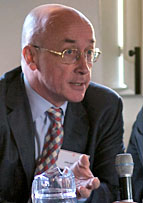
Sir John Jenkins CMG LVO, HM Ambassador to Iraq speaking at the Rustat Conference on the Future of Democracy
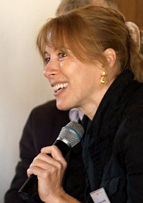
Veronique Mottier, Professor of Sociology, Cambridge University, speaking at the Rustat Conference on the Future of Democracy
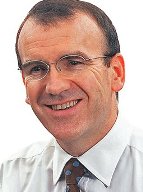
Sir Terry Leahy, CEO Tesco, participant at the Economic Crisis conference
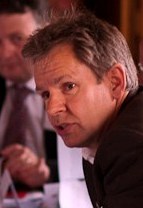
Terry Macalister, Energy Editor, The Guardian, speaking at the Infrastructure for Energy, Water and Cities conference
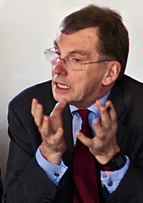
Professor Sir David Omand, former Director GCHQ, at the Rustat Conference on Cyber Security


Lord Eatwell, Professor of Financial Policy, Cambridge University, and Robert Chote, Director of Institute for Fiscal Studies, at the Economic Crisis Rustat Conference
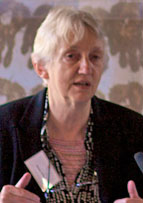
Baroness Onora O'Neill, former President, the British Academy,Emeritus Professor of Philosophy, University of Cambridge


Ed Husain, Director, Quilliam Foundation and
Kweilen Hatleskog, Director of Group Mergers & Acquisitions, BAE Systems
Kweilen Hatleskog, Director of Group Mergers & Acquisitions, BAE Systems


Matthew Taylor,CEO RSA, and Mary Curnock Cook OBE, Chief Executive UCAS


Sally Keeble MP, Treasury Select Committee, and Lord Turnbull, former Cabinet Secretary and Head of the Civil Service.


Dominic Casserley, Managing Partner, McKinsey, UK and Middle East, and Doug Richard, entrepreneur
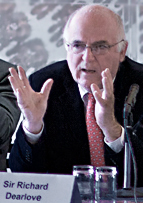
Sir Richard Dearlove, former Chief, Secret Intelligence Service, at the Rustat Conference on Cyber Security.
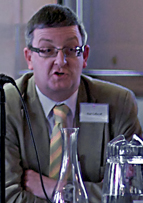
Paul Collacott, Director Cyber Policy, GCHQ

Lord Watson of Richmond, Chairman CTN Communications, and Professor Robert Mair, Master, Jesus College and Professor of Geotechnical Engineering, Cambridge University


Lord Gus Macdonald CBE PC - Adviser to Macquairie Capital, former Minister for Transport and for the Cabinet Office, and Dr Julian Allwood, Senior Lecturer in Engineering, Cambridge University
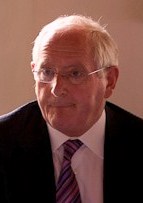
Ray O'Rourke, Chairman and CEO, Laing O'Rourke


Peter Horrocks, Director BBC World Service and Peter Nolan, Sinyi Professor of Chinese Management, Cambridge University


Professor David Runciman, Professor in Political Thought, Cambridge University and George Brock, Professor of Journalism, City University
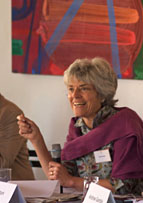
Professor Jean Seaton, Official Historian of the BBC

Ed Stourton, BBC journalist and presenter, and Catherine Pepinster, Editor, The Tablet
